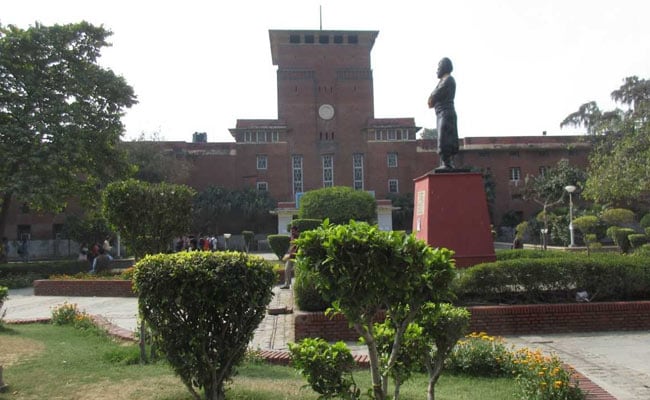
The uproar over syllabus revision in Delhi University continued on Sunday after members of the Executive Council opposed the move and sent back the syllabi of four departments — political science, sociology, history and English — for review under the supervision of an oversight committee. Interestingly, no details about oversight committee were made public.
The opposition came from various sections of the academia who said that the entire process of syllabus revision ignored the spirit of teaching and learning process.
Rajesh Jha, Member of the Executive Council, told Newsclick that the process ignored the history of the university and was being pushed though the University Grants Commission (UGC). He said, “We find a common practice throughout the universities across the globe where the teachers and academicians draft their syllabus themselves. Now, UGC is dictating terms on which new syllabus will be framed and taught. Syllabus of any institution evolves organically and is interconnected. Our basic objection to the entire process is that it undermines the autonomy of the institution. Today, Jamia is known for its Journalism Programme and JNU is known for research. These universities achieved it through independence."
He added," The impact of similar changes in the past is visible when 6,000 seats could not be filled last year. The revision amounts to extra-judicial killing of public-funded universities and colleges so the private players can thrive.”
However, Saikat Ghosh of the English Department and member, Academic Council, argued that sending back the syllabus was done only due to non-academic reasons. He said, "The department has out rightly rejected second set of revisions proposed by the members of NDTF and every text which is ideologically opposed to it is being removed. For Example, Amitav Ghosh's novel, The Shadow Lines, is being replaced. Why? Because in a broader sense it criticises ‘nationalism’.”
Earlier, the Academic Council witnessed similar uproar when many members argued that they were threatened by the members of NDTF and ABVP for their remarks and the council asked the departments to drop the controversial parts.
While the history department has dropped the chapters concerning the history of the Left movement in India, the political science department removed the writings of Professor Nandini Sundar with references to the agrarian crisis and Maoists but the most important changes were seen in the revised syllabus of the English department. The department has dropped a chapter named "Maniben alias Bibijaan" written by Shilpa Paralkar with references to the Gujarat riots in 2002. Similarly, the mention of Muzaffarnagar riots was done away with in the English journalism course.




